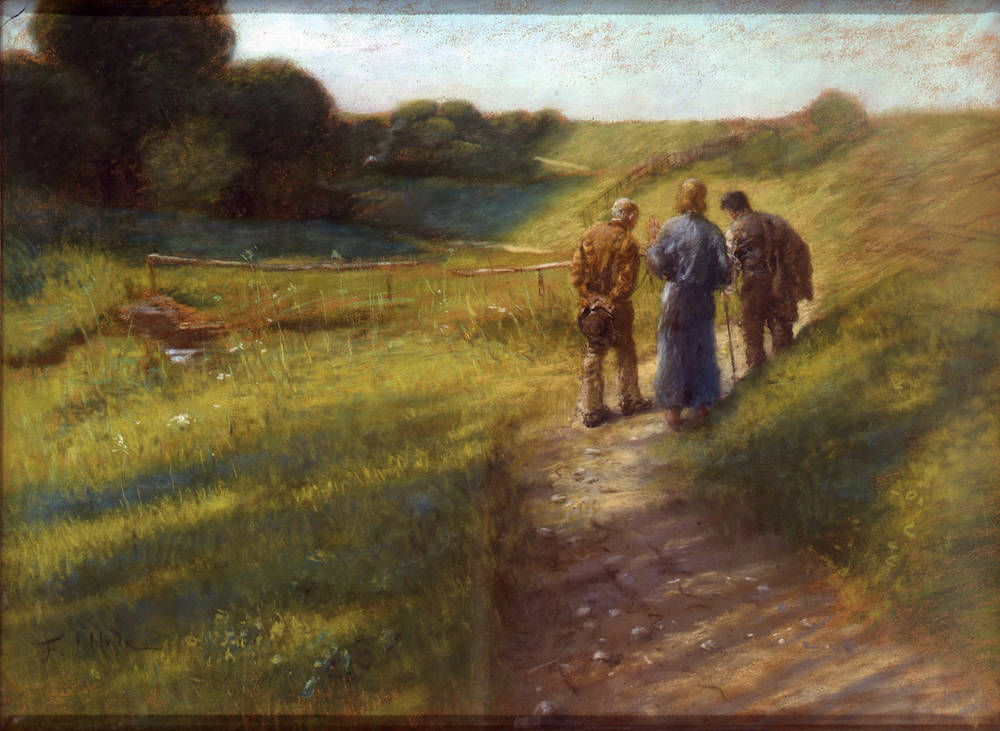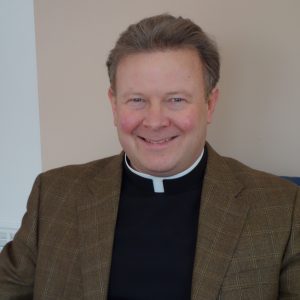
Now that very day two of them were going to a village seven miles from Jerusalem called Emmaus, and they were conversing about all the things that had occurred. And it happened that while they were conversing and debating, Jesus himself drew near and walked with them, but their eyes were prevented from recognizing him. He asked them, “What are you discussing as you walk along?” They stopped, looking downcast. One of them, named Cleopas, said to him in reply, “Are you the only visitor to Jerusalem who does not know of the things that have taken place there in these days?” And he replied to them, “What sort of things?” They said to him, “The things that happened to Jesus the Nazarene, who was a prophet mighty in deed and word before God and all the people, how our chief priests and rulers both handed him over to a sentence of death and crucified him. But we had hoped that he would be the one to redeem Israel… (Luke 24:13-21)
 This had been no ordinary Passover. Every year, Cleopas and his companion along with their families would make their annual pilgrimage, a seven mile journey from their home to the holy city of Jerusalem. But their normally joyful Seder celebration had become a horror. As disciples of Jesus, they had seen the dawning of a new messianic age. A stranger, apparently ignorant of the events everyone was talking about, suddenly appeared. How, they wondered, could this man not have heard about what had happened to Jesus the Nazarene, a prophet mighty in deed and word before God and all the people, who had been handed over to death and crucified? Grief stricken, they explain to the stranger, “But we had hoped that he would be the one to redeem Israel.” We had hoped. We can hear the heartache and pathos in these words. They had had such hope. And now all of their hope was dashed. And yet the source of their hope walked with them. Jesus Christ, the Risen Savior stood right before their eyes and yet “their eyes were prevented from recognizing him” (v. 16). What was the source of their blindness? How could they not have recognized him?
This had been no ordinary Passover. Every year, Cleopas and his companion along with their families would make their annual pilgrimage, a seven mile journey from their home to the holy city of Jerusalem. But their normally joyful Seder celebration had become a horror. As disciples of Jesus, they had seen the dawning of a new messianic age. A stranger, apparently ignorant of the events everyone was talking about, suddenly appeared. How, they wondered, could this man not have heard about what had happened to Jesus the Nazarene, a prophet mighty in deed and word before God and all the people, who had been handed over to death and crucified? Grief stricken, they explain to the stranger, “But we had hoped that he would be the one to redeem Israel.” We had hoped. We can hear the heartache and pathos in these words. They had had such hope. And now all of their hope was dashed. And yet the source of their hope walked with them. Jesus Christ, the Risen Savior stood right before their eyes and yet “their eyes were prevented from recognizing him” (v. 16). What was the source of their blindness? How could they not have recognized him?
In the midst of the pandemic, I have been walking more than ever before. Occasionally a friend will join me…at safe social distance, of course. As we pass other walkers, we know without overhearing that everyone is talking about the same thing: how the pandemic has upended life as we knew it. They speak of the struggles of working remotely while helping their children with their schoolwork. Others count their blessings and wonder how they can ease the lot of the poor and homeless. Others express their concern for the safety of their loved ones providing medical care to those infected by this dread virus. Others are sick with worry about their spouse in the ICU. And in all of this, people of faith long, like Cleopas and his companion, to have their eyes opened to the Risen Christ in the breaking of the bread at a time that it is not possible. We had hoped…
And yet the Risen Christ is as present to us as He has ever been. Open our eyes, Lord, that we may see you. May we see you in those who come to us in need. May our silence and solitude be filled with your presence. Be our strength, oh Lord, on this journey. May we bear the light of your resurrection to all we encounter. The doors to the church are locked for the time being. And yet despite so many locked doors, our access to Jesus, the Risen Christ, our source of hope, remains, as always, unlimited.
Look, I am standing at the door, knocking. If one of you hears me calling and opens the door, I will come in to share a meal at that person’s side. (Rev 3:20 NJB)
Jesus is knocking. The locked door opens on our side.
With love in our Risen Lord,
Fr. Jim
